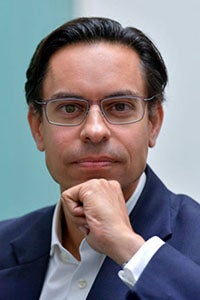It’s taken five years to get here, but starting in 2018 the open banking revolution means customers will be able to authorize banks to share their financial information, opening the way for a data-driven wave of digital financial innovation. Experts ranging from fintech leaders to the head of the official body making open banking happen share their lessons learned so far.
1. Digital banking is still in its infancy
Banks have evolved from the branch, to telephone, to the web and to mobile apps, but ongoing efforts often demonstrate that they are still not digitally ready, argues David M. Brear, founder and chief executive of the consultancy firm 11:FS.
“We see that digital banking is only one per cent finished. For us this is a comment on the underwhelming level of transformation that we’ve witnessed within big financial services organisations and the industry as a whole.”
Mr Brear adds that given the billions of pounds spent by big banks on innovation: “You would expect a greater change in terms of user experiences and operational efficiencies. Hopefully, with open banking that’s still to come.” Open banking, he says, offers the opportunity to “significantly improve” work here.

Ed Maslaveckas of Bud
2. Data is the untapped gold mine
Banks need to make better use of information, particularly to sell to the ‘Facebook generation’, says Ed Maslaveckas, co-founder and chief executive of the fintech platform Bud. Effective and secure data use means banks can dramatically improve services and “open banking means thousands of different options and better experiences become available,” he explains.
“This genuinely is one of those times when you can help shape the future”
Mr Maslaveckas says that when founding a company working in this area he learned a tough lesson. “When I founded Bud it came from a place of optimistic naivety: I was working at a tech company and I was optimistic enough to wonder about new possibilities with data,” Mr Maslaveckas says. “While those possibilities are real with open banking, we’ve learned not to aim too big, and to work on using aggregated data well, so we match people with ideal products as their demands change.”
3. Don’t resist the current change

Imran Gulamhuseinwala
“We see banks out there that hope this change all goes away because it involves a fundamental shift in how the dialogue with their customers can be managed,” notes Mr Brear. “But we also see those embracing the opportunities – they are probably a lot better set up for the next decade.”
Imran Gulamhuseinwala, implementation trustee at Open Banking, which is leading the UK’s implementation of relevant changes, says much of the industry “from huge global banks to tiny fintech startups” is adopting the open setup needed for consumers to potentially benefit.
However, for those late to the party, Mr Gulamhuseinwala’s advice is “to learn from the majority of the industry and get involved: this genuinely is one of those times when you can help shape the future”.
4. Culture is your enabler or your roadblock
Christoph Rieche, co-founder and chief executive at iWoca, has seen his business loans firm expand rapidly in the last five years. He has learned however to retain a startup culture.
“It’s been important to keep the startup spirit, even though in five years we’ve grown to 160 people,” explains Mr Rieche, whose own background is in big banks. “You have to have a quick growth mindset, by having the right people and constantly taking on ideas. Being open to change and ready to evolve is essential.”
Another reason to maintain the startup mentality, Mr Rieche says, is the ability to adapt to new circumstances: “You tend to realise that if your culture can go along with important change, then your business benefits in ways you didn’t expect.”
5. Serve up the experiences customers want
Mr Rieche says it is essential to provide the experiences customers ask for. “We had an early credit agreement for loans, but it was difficult for customers to increase ongoing credit,” he says. “After speaking to clients we realised we needed to update our agreement to automatically cover additional lending.”
“Deciding whether you and your partner can buy a house is not just about getting the right mortgage”
Big banks, too, can lose direction in a myriad of areas such as customer experience. Their end goal should be offering seamlessly integrated customer journeys rather than just products, according to Mr Maslaveckas. “Deciding whether you and your partner can buy a house is not just about getting the right mortgage, it also involves figuring out your savings situation and various other factors,” he explains. “Open banking presents the industry with the opportunity to join up these experiences.”
Learn how banks, fintechs and you can own the future of money. Thisisbud.com
1. Digital banking is still in its infancy

